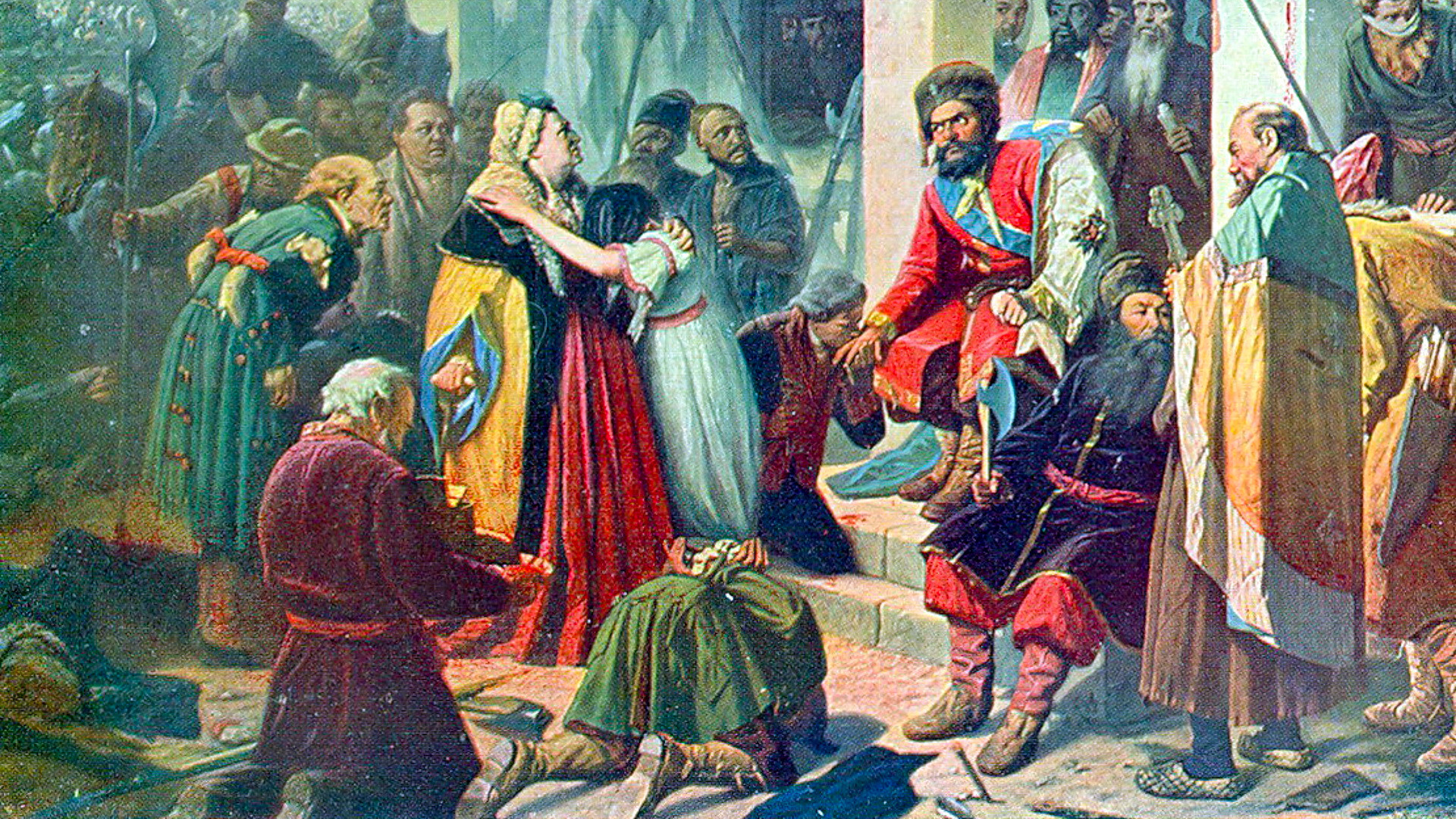
Yemelian Pugachev's Trial. Painting by Vasily Perov.
The State Russian Museum“God save us from seeing a Russian revolt, senseless and merciless,” says the hero of Alexander Pushkin's story ‘The Captain's Daughter’ about the rebellion of Yemelyan Pugachev.
There have been many peasant uprisings and wars in Russian history, but none reached such a scale or instilled such anxiety in the hearts of the rulers of the state as the Pugachev Rebellion.
Until the age of 30, Don Cossack Yemelyan Pugachev faithfully served the tsarist government and the Fatherland, participating in wars against Prussia and the Ottoman Empire. However, in 1771, he deserted the army and soon joined the Yaik Cossacks in the southern Urals.
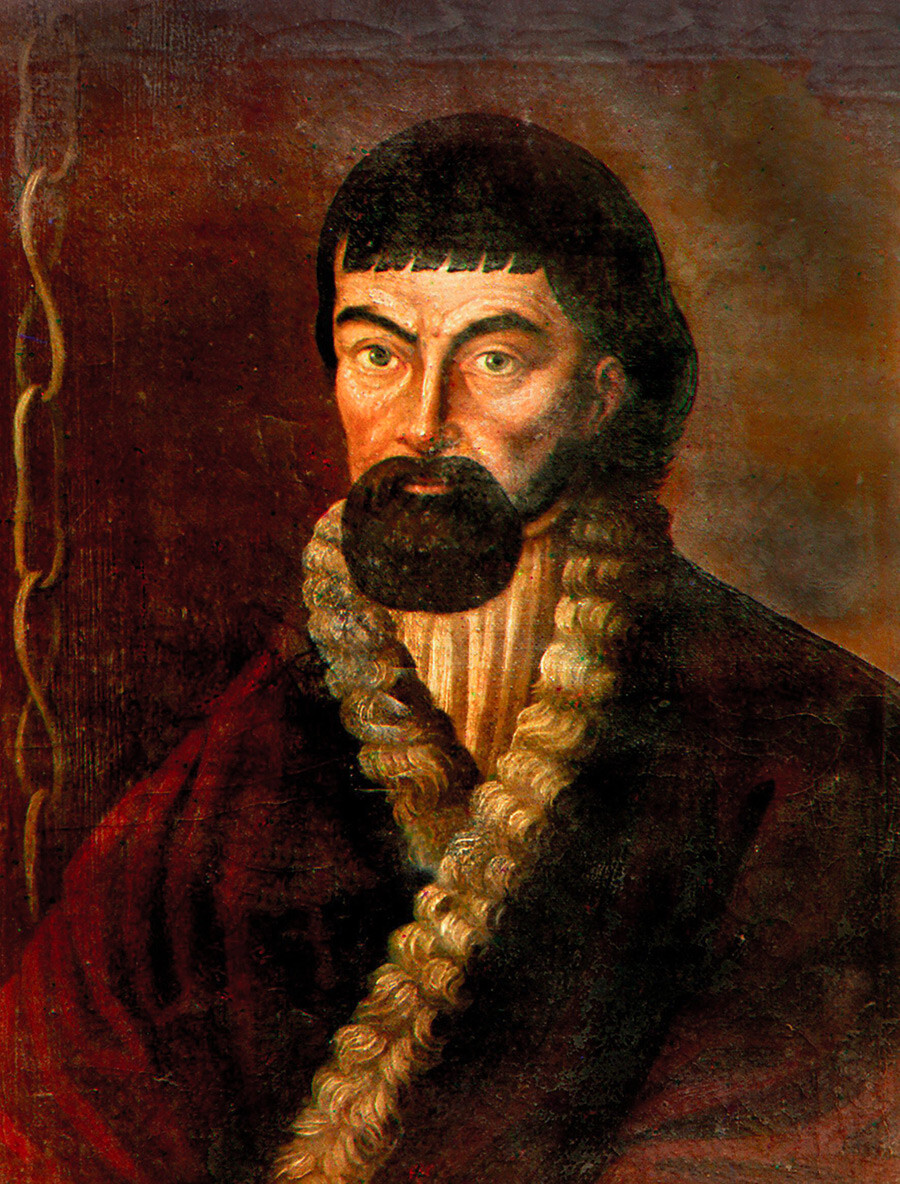
Yemelyan Pugachev.
Legion MediaThe fugitive, adventurous by nature, had an incredible idea - to impersonate Emperor Peter III. The monarch had died mysteriously during a palace coup in 1762, which brought his wife, Catherine II, to power.
The circumstances of Peter's death gave rise to a lot of speculation and conspiracy theories in Russian society. There was even an idea that the sovereign was alive, which meant that Catherine was occupying the throne illegally. This is exactly what Pugachev decided to play on.
He chose an extremely opportune time. Discontent with the strengthening of serfdom was brewing among the peasantry and the Yaik Cossacks were indignant at the authorities depriving them of their former liberties - shortly before Pugachev's arrival, they even entered into an open armed clash with the tsar's troops.
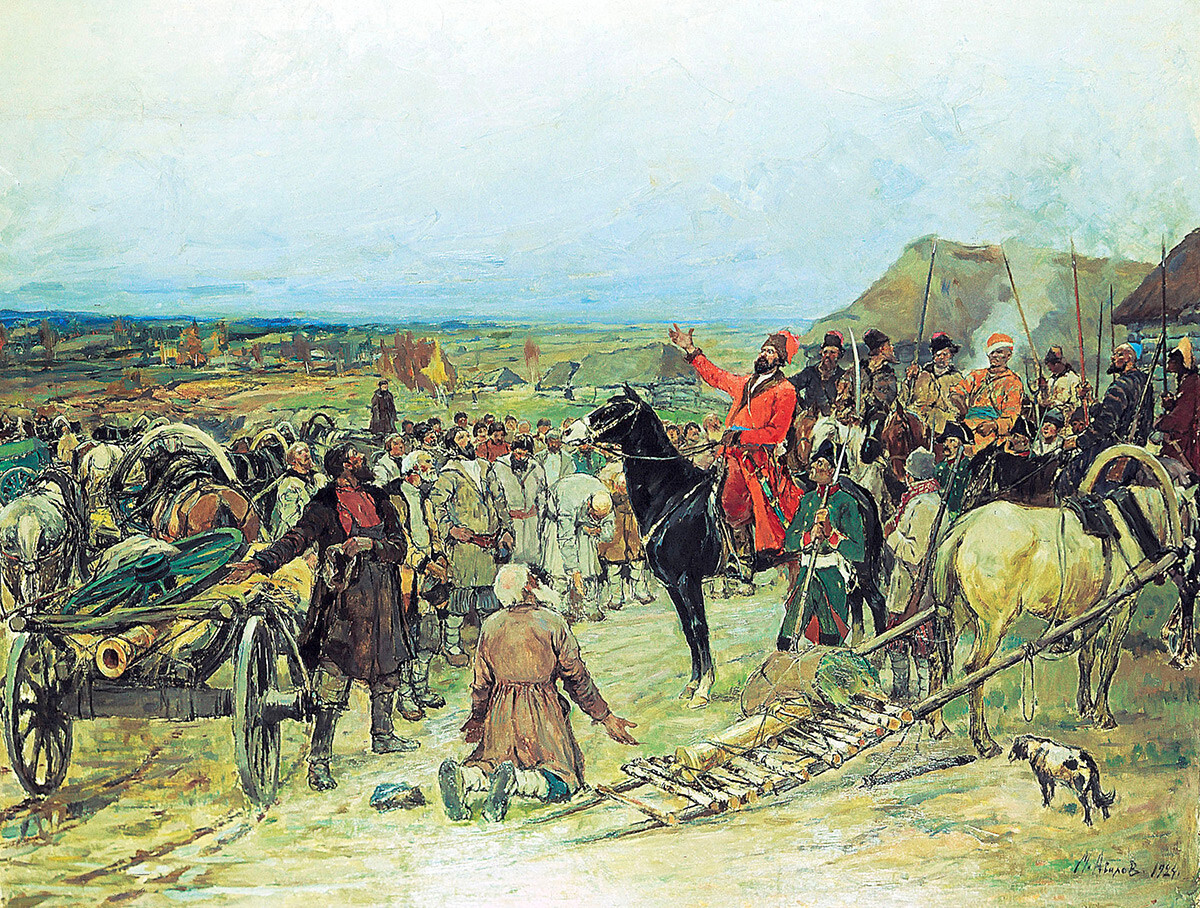
Bringing Guns to Pugachev.
Sovfoto/Getty ImagesThe strong and dark Yemelyan did not resemble a refined autocrat in any way, but the common people wanted to see him as such. The dissatisfied needed a legitimate leader who would lead them in the struggle to restore justice.
“As you, my friends, served the former tsars to the last drop of your blood, your uncles and fathers, so you will serve me, the great sovereign emperor Peter Fedaravich, for your fatherland. When you stand up for your fatherland, and your Cossack glory will not expire from now and forever and for your children,” is how the “miraculously saved tsar” addressed his subjects in September 1773.
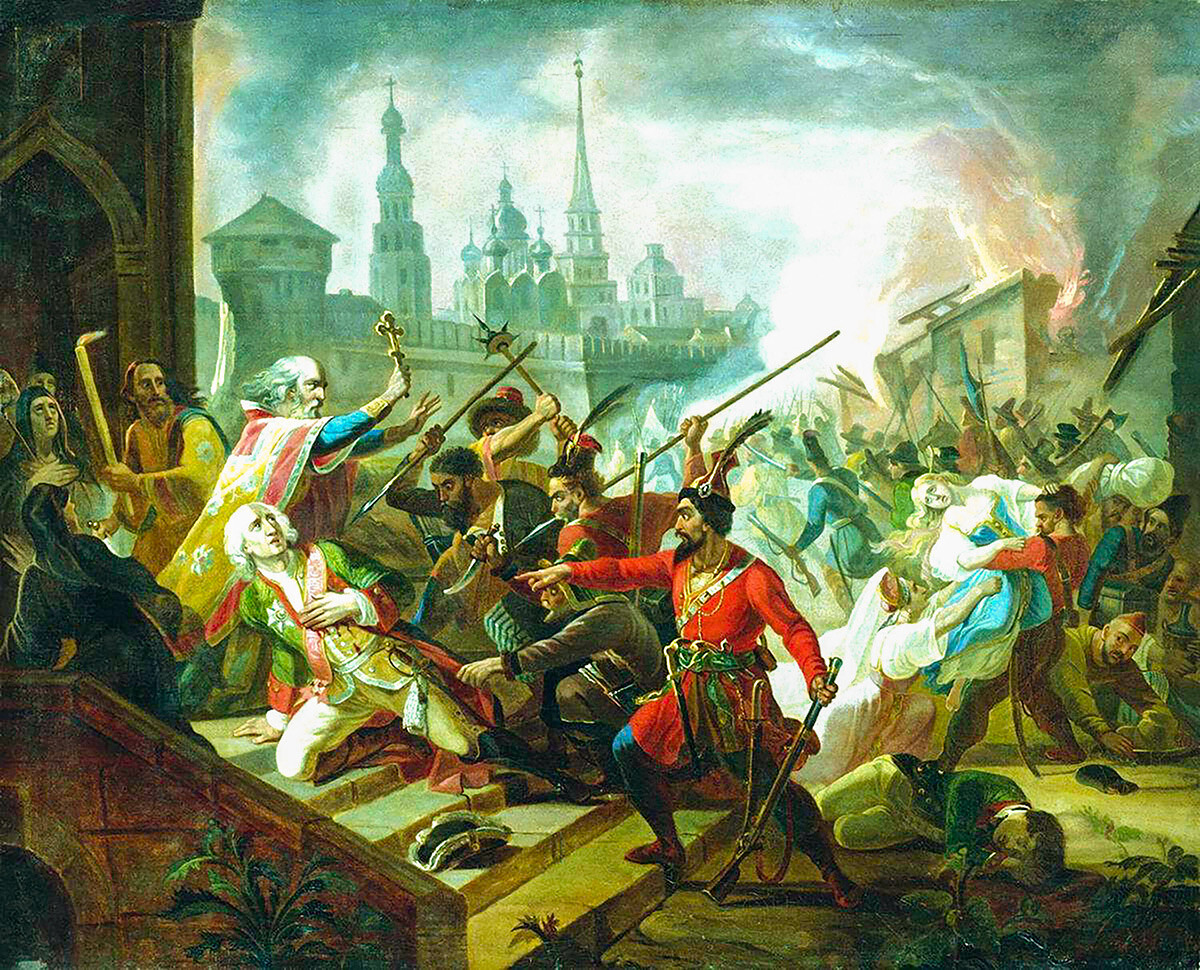
Pugachev attacks Kazan.
Legion MediaPugachev distributed liberties, privileges and lands right and left, proclaimed the struggle against the oppressor nobles, promised liberation from serfdom and the easing of taxes. This attracted a lot of supporters to the ranks of his army.
In fact, the “fight for justice” quickly turned into bloody terror. The rebels plundered estates and mercilessly killed nobles, officers and anyone who wished to remain loyal to the empress.
Sometimes, the cruelty of the rebels went beyond all conceivable limits. Thus, they skinned alive Colonel Yelagin, the fat commandant of the Tatishchev fortress, and “smeared his wounds with lard until he finally died.”
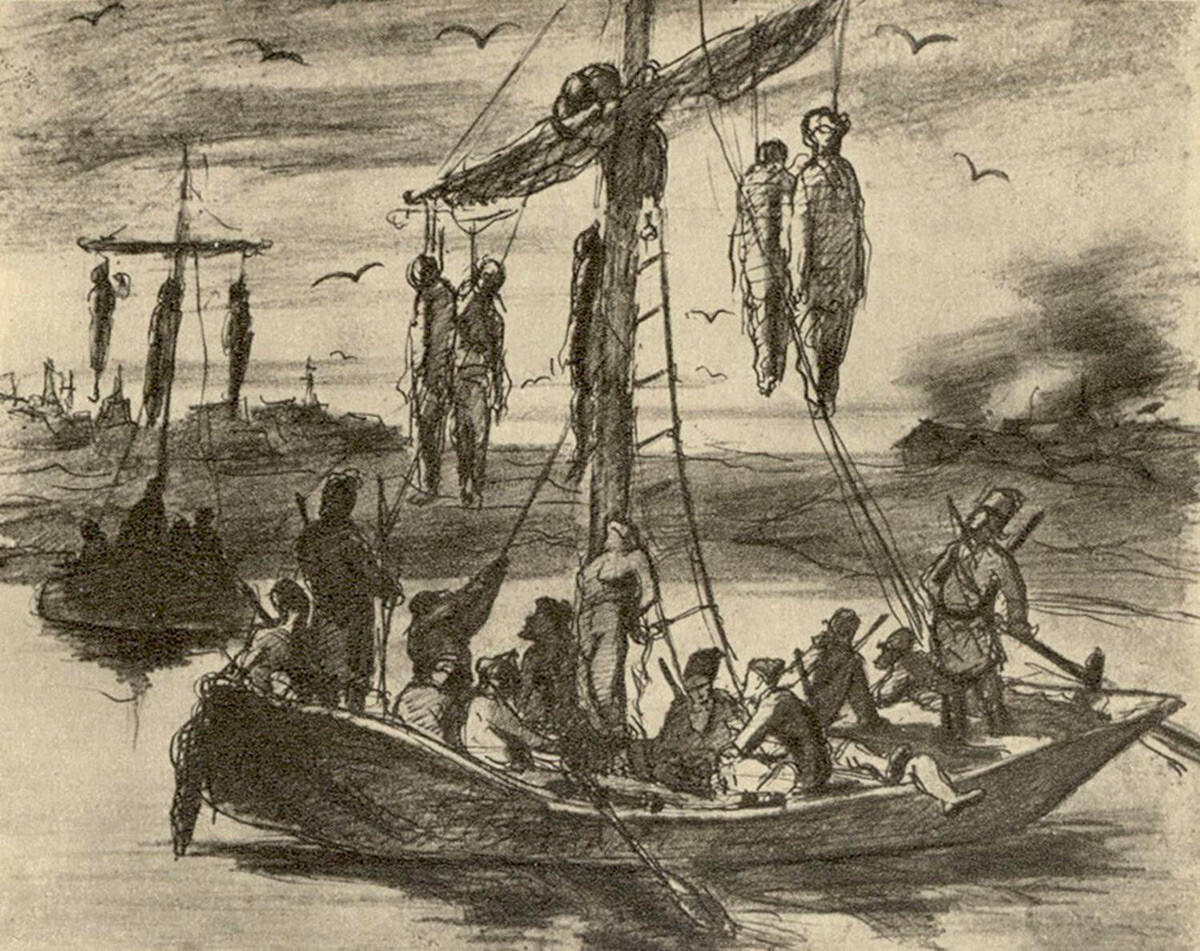
Executed By Pugachev.
Legion MediaFor several years, the Pugachevites brought terror to vast territories of the Urals, Volga Region and Bashkiria. The rebels plundered many small fortresses and towns and inflicted several defeats on government troops. The situation for the authorities was complicated by the fact that the most combat-ready units were involved in battles against the Turks.
The rebels even managed to break into Kazan, but the large cities of Orenburg and Tsaritsyn turned out to be too tough for “Tsar Peter Fyodorovich”. Volunteers were constantly arriving for the impostor, but he was never able to create a combat-ready army from the motley crowd.
In September 1774, Pugachev was finally defeated and handed over to the tsar’s troops by his own comrades.
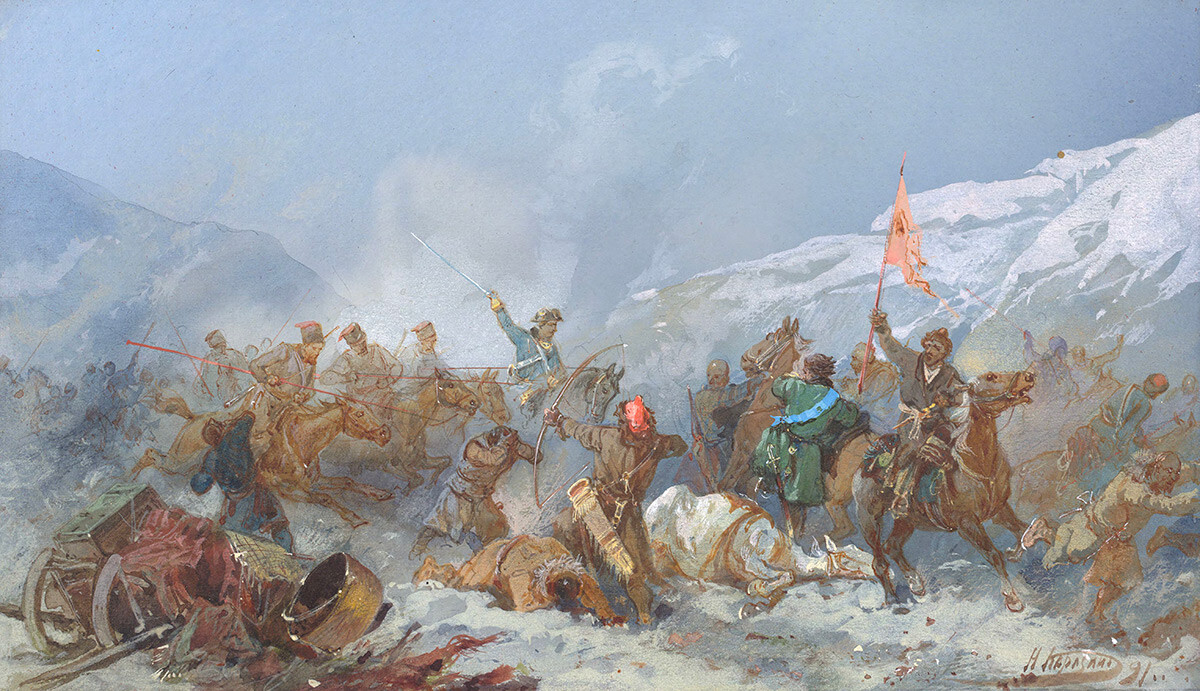
Fight with Pugachev's troops.
Fine Art Images/Heritage Images/Getty ImagesThe “sovereign”, along with dozens of his closest confidants, were brought to trial in Moscow. On January 21, 1775, he was beheaded and quartered.
It took several more months to suppress all pockets of resistance. Thousands of rebels were executed with no less cruelty than the Pugachevites had dealt with their captives.
Catherine II immediately ordered the uprising to be consigned to oblivion. The Yaik River was renamed the Ural River, the Yaik Cossacks were renamed the Ural Cossacks and Pugachev's native village of Zimoveyskaya was renamed Potemkinskaya. Even the family of the "sovereign" changed their last name to Sychev.
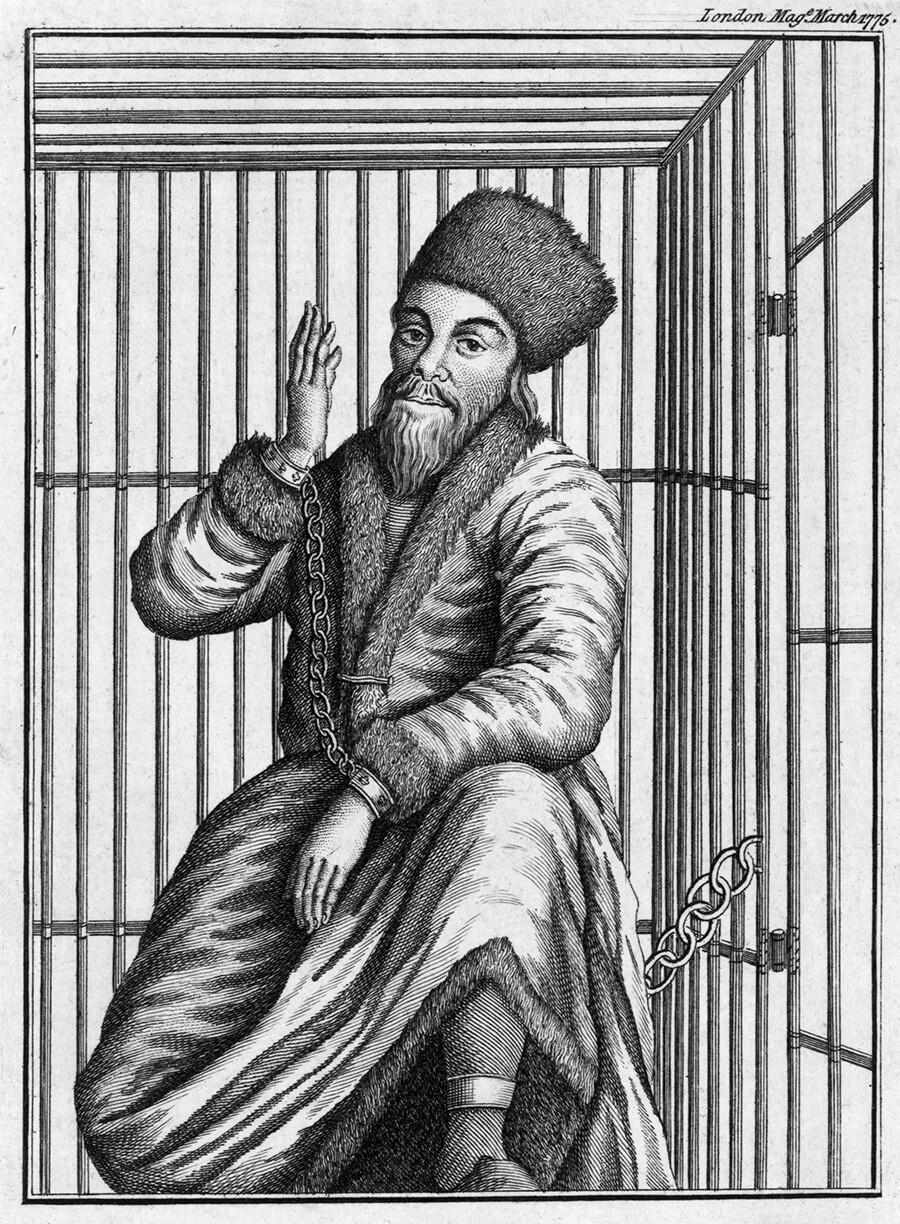
Captured Pugachev.
Bettmann/Getty ImagesNevertheless, the government drew conclusions from this social upheaval and tried to improve the living conditions of the peasantry. At the same time, state policy towards the Cossacks and the Bashkirs, Tatars and Kalmyks, who had en masse joined the impostor, began to be conducted more cautiously and thoughtfully.
If using any of Russia Beyond's content, partly or in full, always provide an active hyperlink to the original material.
Subscribe
to our newsletter!
Get the week's best stories straight to your inbox